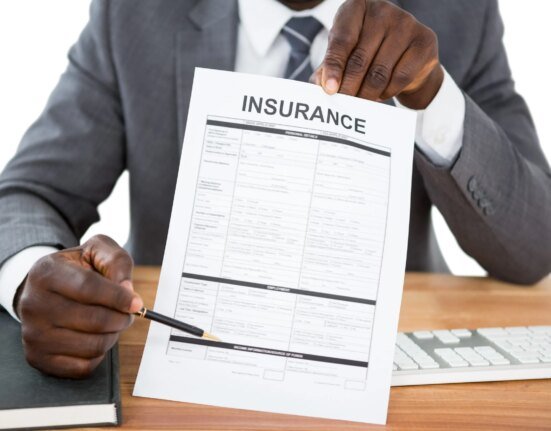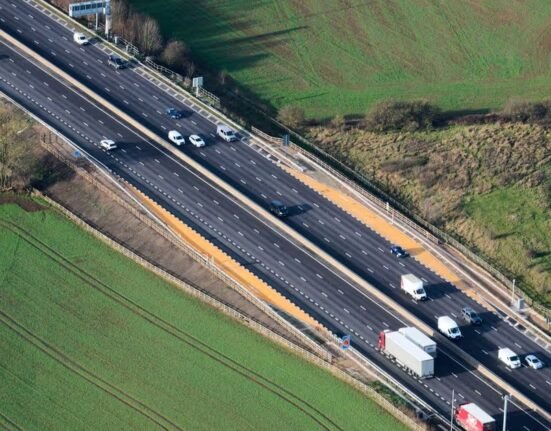As part of the Biden-Harris Administration’s Investing in America agenda, the U.S. Department of Energy (DOE) Loan Programs Office (LPO) published today comprehensive Community Benefits Plans (CBPs) for several projects that have recently finalized financing from DOE. Publishing CBPs for projects receiving LPO loans or loan guarantees increases the transparency of the community engagement process and demonstrates how LPO’s investments deliver tangible benefits to communities across the country. LPO published CBPs from three projects that have reached financial close on LPO financing since the start of Fiscal Year 2024: CelLink, the Viejas Microgrid, and Holtec Palisades. In total, these projects will support over 400 construction jobs and over 2,800 operations and maintenance jobs. On the heels of Justice Week 2024, releasing full CBPs highlights LPO’s commitment to community engagement and centering community voices.
As part of President Biden and Vice President Harris’ efforts to build an equitable and inclusive clean energy future, LPO works together with private sector loanees to develop and ultimately implement CBPs. DOE requires CBPs for nearly all Bipartisan Infrastructure Law and Inflation Reduction Act funding opportunity announcements and loan applications. As part of their CBPs, borrowers have created partnerships in their communities with labor unions, Tribal governments, universities and community colleges, local school systems, community advocates, non-governmental organizations, and local contractors and businesses.
CBPs help ensure that the jobs created by a project are good-paying, family-sustaining jobs––often represented by a union that can collectively bargain for favorable wages and workplace conditions. Partnerships with local high schools, colleges, and universities engage students interested in learning a trade that can lead to a lifelong career in the green economy. Educational institutions also help train and re-train workers looking to learn new skills or transition to a new industry.
Commitments to diversity, equity, inclusion, and accessibility ensure the opportunities created by LPO-supported projects are available to everyone, especially those in communities of color and low-income communities that have been marginalized by underinvestment and overburdened by pollution. The Justice40 Initiative sets a goal for projects supported by the federal government to benefit disadvantaged communities by creating job opportunities, decreasing pollution, lowering energy costs, increasing access to clean energy technologies, and building more resilient energy systems.
The CBPs from projects that reached financial close in the past fiscal year demonstrate how borrowers are making positive impacts in communities across the United States. For example:
- CelLink, a wiring harness manufacturer in Georgetown, Texas, is developing partnerships with the Georgetown Independent School District, Texas State Technical College, and Austin Community College to recruit local workers.
- The Viejas Microgrid, located on the Tribal lands of the Viejas Band of the Kumeyaay Indians near Alpine, California, will help lower the Tribe’s cost of energy, allowing savings to be redirected toward investments by the Tribe in infrastructure maintenance, operation of the fire department, Tribal culture and educational programs, and other Tribal member services. The project will be constructed by workers from International Brotherhood of Electrical Workers and the International Union of Bricklayers and Allied Craftworkers.
- Holtec Palisades, which is restarting a nuclear plant located in Covert Township, Michigan, will support jobs for members of the Utility Workers Union of America and the United Government Security Officers of America. Holtec also successfully negotiated a Project Labor Agreement with 15 trade unions supporting the recommissioning of the plant.
Sharing CBPs with the public is a meaningful way to increase transparency and invite accountability into LPO’s community engagement work. Today’s announcement also provides an opportunity for potential partners to learn more about these projects and ways they can collaborate directly with the project owner or with community stakeholders. CBPs are helping bolster LPO’s commitment to improving communities and advancing a more just economy while building the infrastructure and supply chains needed to build a healthy, carbon-free future.
For more information about a CBP or LPO’s community engagement, visit LPO’s new CBP landing page. You can email lpo@hq.doe.gov to connect with our Community Jobs and Justice team.







